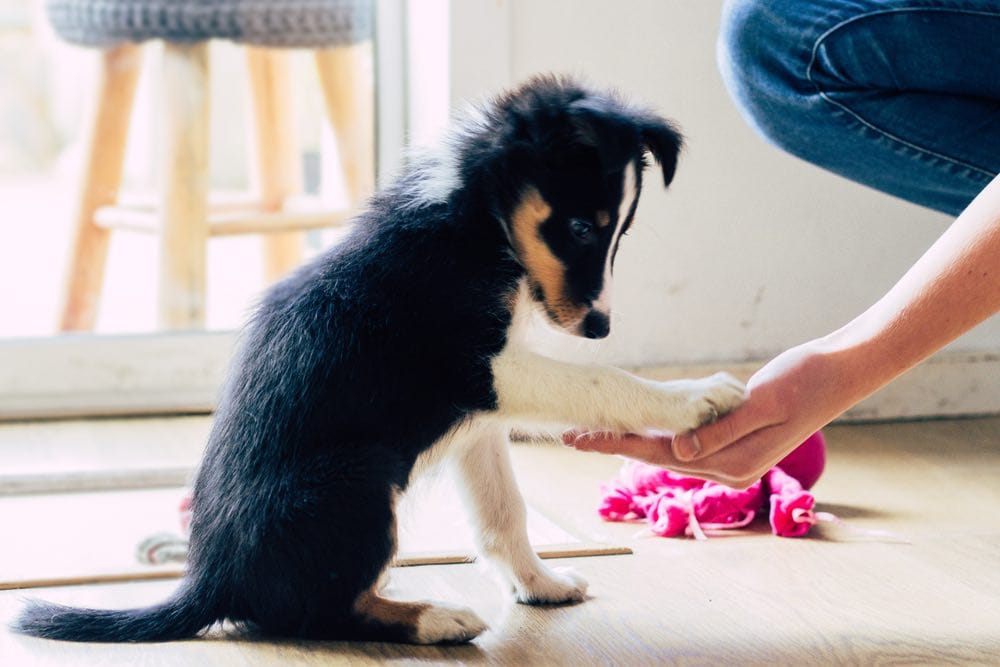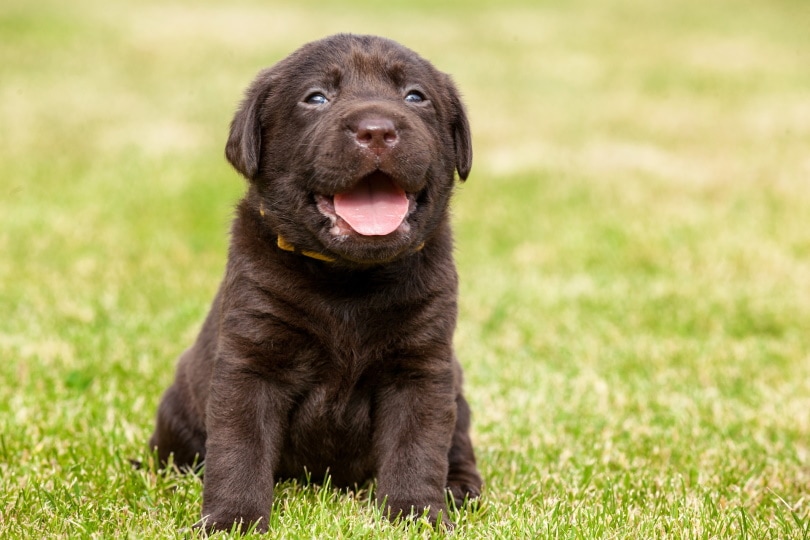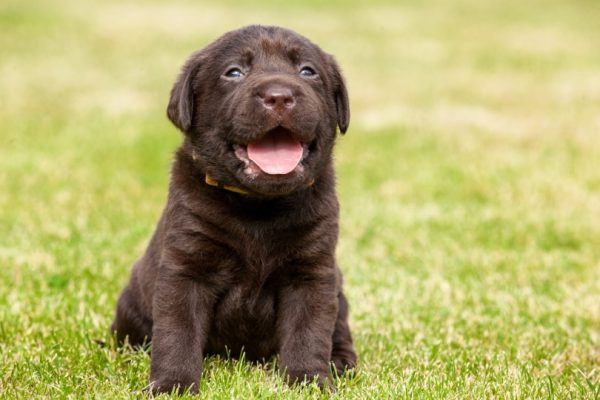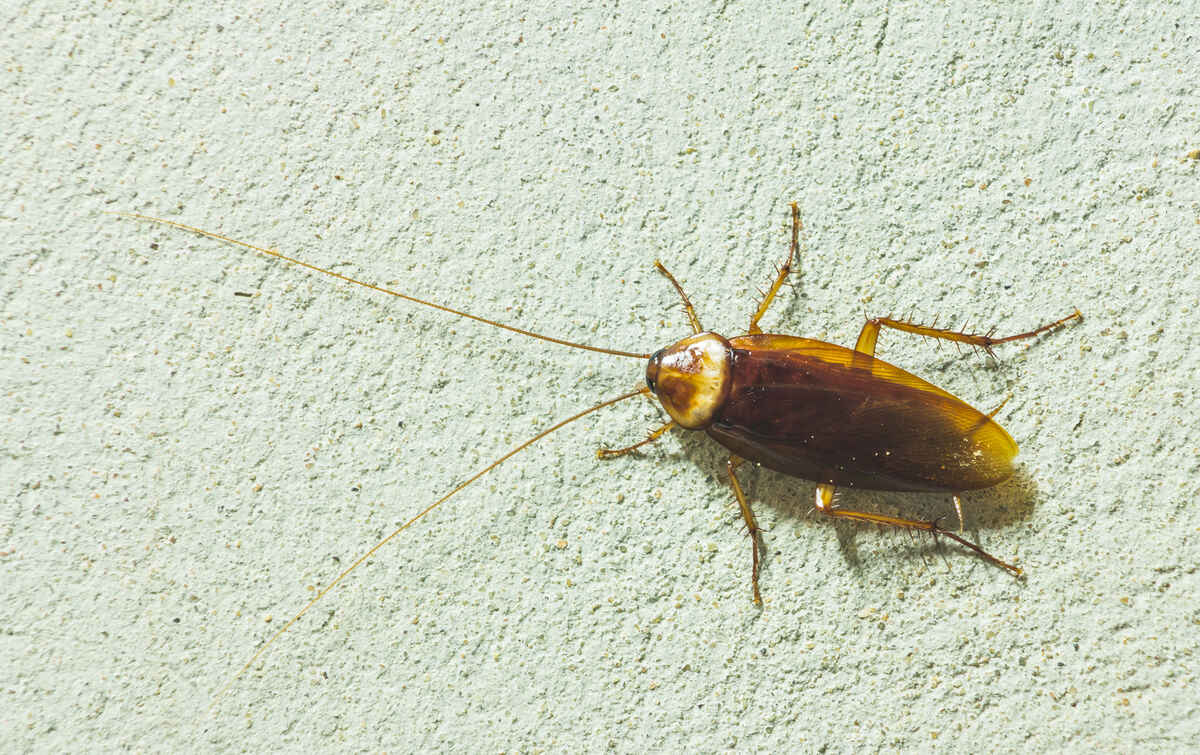There is nothing more exciting than bringing home a brand-new puppy! That new puppy smell, their soft fur, and the adorable squeaks and yaps are so heartwarming! While puppies are capable of cute vocalizations, you may be wondering when exactly they begin to bark.
The answer depends on a few factors, including the puppy’s breed, but generally, most puppies will begin barking as young as 3 or 4 weeks old. It may not sound much like a bark at first, but by 7 or 8 weeks old, they ramp it up and begin making louder, more piercing barks.
Let’s take a deeper look at when puppies start barking, why they bark, and how to prevent it from becoming a habit.
Barking Is a Form of Communication
Barking can be triggered by many different factors, but first and foremost, it’s a form of communication. Your dog is trying to attract attention, either from you or other dogs, though it should not always be encouraged. There are many different types of barks that dogs and puppies have. Some of these do require your close attention, while others, the ones that you don’t want to encourage, are merely habitual.
Dogs and puppies typically bark when they’re playing, enthusiastic, alert, or warning you of danger. However, dogs can also bark due to boredom, stress, frustration, and habit, and barking is not necessarily synonymous with aggression. It’s important to learn the difference, so you can teach your new puppy not to bark unnecessarily.

When Do Puppies Begin Barking?
Your puppy’s first bark will be vastly different from their bark as an adult. They will begin making small vocalizations as young as 3–4 weeks old. At around 6–8 weeks old, these small vocalizations will begin to coalesce into a real bark, albeit less threatening than an adult’s!
Puppies typically bark as a part of their learning and development, while they are playing with their littermates or communicating with their mother. There are many possible reasons for a puppy to bark. Also, just because some puppies are capable of barking at this age, it doesn’t necessarily mean they will. If you have a young puppy that’s not barking yet, there is typically nothing to be concerned about.
Other factors, like your dog’s breed and unique temperament, can also play a part in how soon they begin barking, so you may not hear your pup barking for months! Puppies also learn from the dogs around them. If your puppy has come into your home and there are no other dogs around, it may take them longer to bark, or if you have many barking dogs in the house, they may begin copying them immediately.
Generally, though, in the first few weeks of your puppy’s life, they’ll be mostly silent.

Socialization Is Key
While socialization and learning from other dogs are vital to your puppy’s development, bad habits can also be picked up. For example, if your puppy is brought up around dogs that bark for any and every reason, they’ll likely follow suit. It’s important that your dog socializes and learns from dogs that are well-behaved and properly trained, as this will go a long way toward helping your puppy behave well too.
While barking should be paid attention to, it should not be encouraged, and it’s important to nip bad habits in the bud before they become ingrained.

How Do You Stop Barking From Becoming a Habit?
Before attempting to control your puppy’s barking, you should determine the root cause. This could be stress, separation anxiety, boredom, or pent-up excess energy. Make sure your pup is getting enough attention and physical and mental stimulation—typically, a well-exercised and stimulated dog should not bark excessively. Be sure they’re not in a stressful environment before attempting to control their barking.
Training your new pup is an in-depth process, but if they are barking excessively, there are a few things that you can do to help:
- Make sure all your puppy’s needs are met (exercise, mental stimulation, attention).
- Ignore unnecessary barking and reward good behavior only.
- Be calm yet assertive when training your puppy.
- Use distractions.
- Stay consistent.
- Never reward barking with any kind of attention, good or bad.

Final Thoughts
When a puppy begins to bark depends on several factors, including their breed, environment, and temperament, but it typically begins at around 6–8 weeks old. It will be a quiet, sweet sound at first and then develop into a full-blown bark by the time that the dog is around 3 months old. All dogs develop at different speeds, though, and some may only begin barking after a few months and even then, rarely. Usually, this is nothing to be concerned about because all dogs develop at their own pace.
Featured Image Credit: Pixabay











